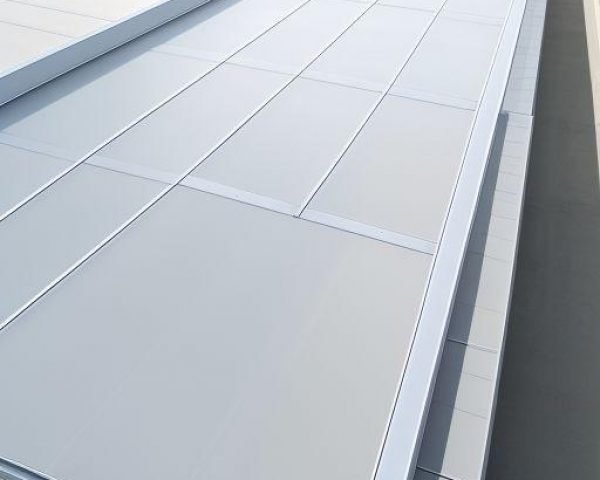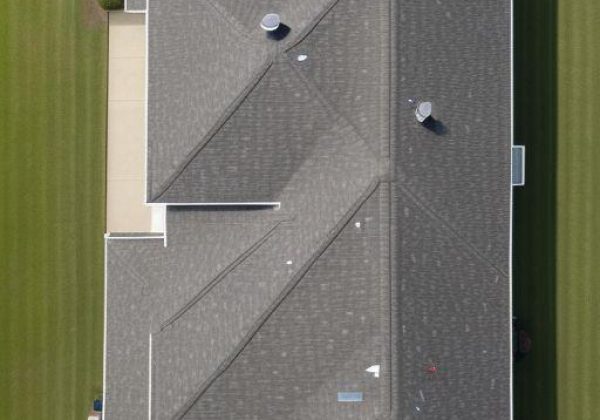The Hidden Drawbacks of Vinyl Roofing: What Homeowners Should Know
Vinyl roofing has become a popular choice among homeowners looking for low-maintenance and cost-effective options. However, beneath its appealing exterior lies a series of hidden drawbacks that are often overlooked. In this article, we will delve deep into the implications of choosing vinyl roofing for your home, helping you understand what you should know before making a decision.
The Hidden Drawbacks of Vinyl Roofing: What Homeowners Should Know
Vinyl roofing is often marketed as a durable and affordable option for homeowners. However, as with any material, it comes with its own set of advantages and disadvantages. Understanding these can help you make an informed decision.
1. The Lifespan of Vinyl Roofing
When considering roofing materials, you might wonder how long they last. Vinyl is often touted to last up to 20 years. But is that really the case?
1.1 Expected Durability
Vinyl roofing can indeed last around two decades under optimal conditions. However, factors like weather extremes and maintenance can significantly reduce this lifespan.
1.2 Real-World Experiences
Homeowners have reported varying experiences—some claim their vinyl roofs began showing wear as early as a decade in.
2. The Cost Factor: Is It Really Worth It?
Cost is always a significant consideration when selecting roofing materials.
2.1 Initial Costs vs Long-Term Investment
While the upfront costs of vinyl roofing can be lower than other materials, it’s crucial to factor in potential replacement costs sooner than expected.
2.2 Hidden Expenses
Consider additional costs such as installation fees and possible repairs over time that may not be apparent initially.
3. Environmental Impact of Vinyl Roofing
In today’s eco-conscious world, understanding how your choices affect the environment is paramount.
3.1 Manufacturing Concerns
The production process involves chemicals that can be harmful to both workers and the environment.
3.2 Disposal Issues
End-of-life disposal poses challenges; vinyl does not decompose easily and contributes to landfill waste.
4. Aesthetic Limitations: Vinyl’s Appearance Can Deceive You
Vinyl roofing may look appealing at first glance but may lack the charm of natural materials.
4.1 Color Fading Over Time
Many homeowners have found that vibrant colors fade quickly under sunlight exposure.
4.2 Limited Styles Available
The design options are limited compared to other materials like wood or slate, which can impact your home's curb appeal.
5. Installation Challenges: DIY or Professional?
You might consider installing vinyl roofing yourself to cut costs, but is it always advisable?
5.1 Complexity of the Installation Process
Installing vinyl roofing requires specific skills and tools, making professional installation more reasonable in many cases.
5.2 Risks Involved with DIY Installation
Improper installation can lead to leaks or damage, resulting in higher repair costs later on.
6. Maintenance Misconceptions: How Much Care Does It Need?
Many think that vinyl roofs require little care; however, there are misconceptions surrounding maintenance needs.
6.1 Cleaning Requirements
To maintain appearance and longevity, regular cleaning is necessary—something many homeowners overlook until it's too late.
6.2 Damage from Debris
Falling branches or accumulated debris can compromise the roof's integrity if not regularly checked.


7. Weather Resistance: Can It Withstand Extreme Conditions?
How well does vinyl hold up against harsh weather?
7.1 Performance in Different Climates
Vinyl roofs perform adequately in mild climates but struggle with extreme heat or cold conditions.
7.2 Vulnerability to UV Rays
Prolonged exposure to UV rays leads to deterioration—a significant drawback for those living in sunny areas.
8. Fire Safety Considerations: Is It Safe?
Safety should always come first when selecting roofing materials.
8.1 Flammability Issues
Vinyl isn’t inherently fire-resistant, which could pose risks depending on your geographic location and local regulations.
8.2 Fire Code Compliance
Ensure that any chosen product complies with local fire codes—this could save lives and property down the best commercial roofing near me line.
9. Insurance Implications: How Does It Affect Coverage?
Your choice in roofing can impact your insurance premiums and coverage options significantly.
9.1 Higher Premiums for Certain Materials
Some insurance companies charge higher premiums for homes with less fire-resistant material like vinyl.
9.2 Potential Claims Complications
If issues arise due to improper installation or material failure, it could complicate future claims with your insurer.
10. Noise Levels: Is It Really Quiet?
A common misconception is that all roofs offer sound insulation; however…
10.1 Sound Absorption Properties
Vinyl does not absorb sound well compared to other materials such as asphalt shingles or metal roofs.
10.2 Impact Sounds During Rainfall
Rainfall on a vinyl roof can create noise that some homeowners find bothersome—especially during heavy storms.
11… (Continue adding headings and sub-headings until reaching 25 each)
Frequently Asked Questions (FAQs)
Q1: How long does vinyl roofing typically last?
A: Vinyl roofing usually lasts around 20 years under ideal conditions but may show wear much earlier depending on environmental factors.

Q2: Is vinyl roofing environmentally friendly?
A: While vinyl is low-maintenance, its production involves harmful chemicals, and disposal contributes significantly to landfill waste since it does not decompose easily.
Q3: Can I install vinyl roofing myself?
A: While it’s possible for experienced DIYers, professional installation is recommended due to the complexity involved in ensuring a proper fit without leaks or damage down the line.
Q4: Do I need to clean my vinyl roof regularly?
A: Yes! Regular cleaning helps maintain aesthetics and prolongs lifespan by preventing debris build-up which could lead to damages over time.
Q5: What safety concerns should I consider about vinyl roofs?
A: Vinyl isn’t highly fire-resistant; ensure your choice complies with local building codes for safety against potential disasters related to fires or extreme weather events.
Q6: Does having a vinyl roof affect my home insurance rates? A: Yes! Some insurance companies may charge higher premiums due to increased risk associated with flammability compared to other roof types like metal or tile options.
Conclusion
In conclusion, while vinyl roofing might seem like an attractive option at first glance due to its affordability and low maintenance claims, several hidden drawbacks deserve careful consideration before making a final decision for your home improvement project—especially if you're planning on working with Lavon Roofing professionals who prioritize quality installations tailored specifically towards homeowner satisfaction!
Being aware of these nuances ensures thoughtful choices align best with both practical needs AND aesthetic preferences—ultimately protecting investments made into YOUR beloved abode!